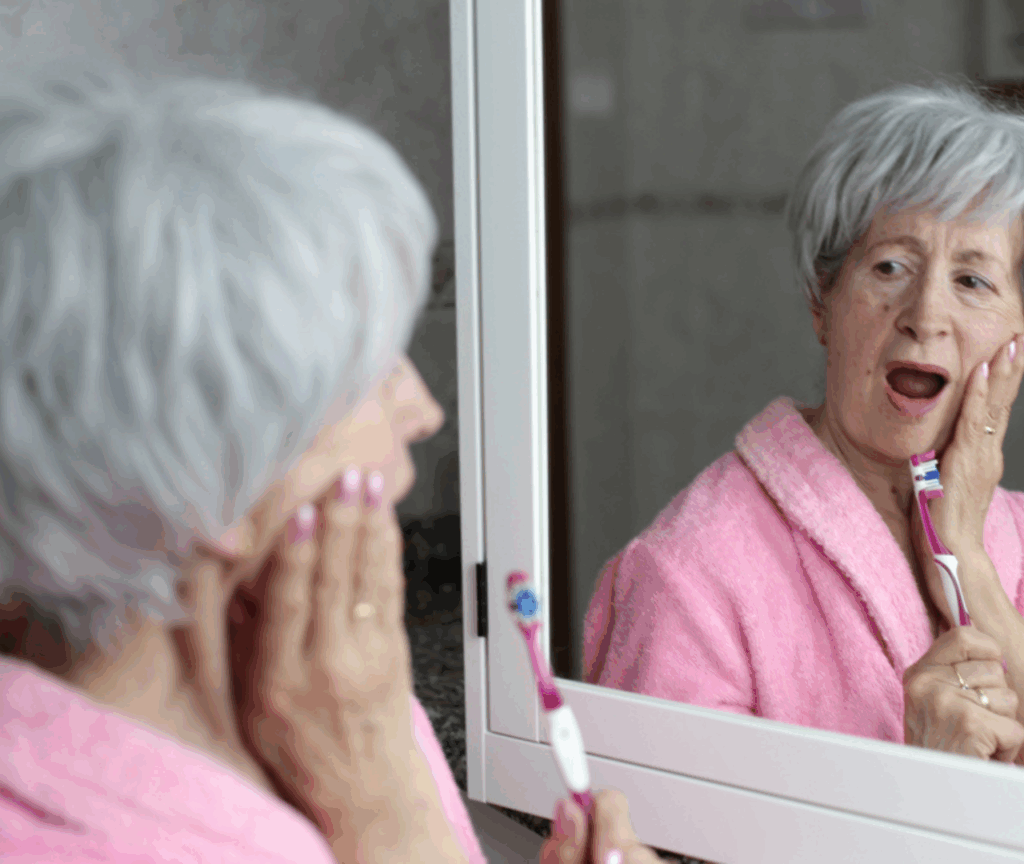Fresh breath is more than just a pleasant sensation—it’s a reflection of good oral health and an important part of daily confidence. For seniors, maintaining fresh breath and healthy teeth and gums can significantly contribute to overall well-being and social comfort. Embracing simple oral health practices helps seniors enjoy life fully with a bright, confident smile.
The Connection Between Oral Health and Confidence
Oral health is closely linked to overall health and self-esteem. Fresh breath encourages positive social interactions and strengthens personal connections. When seniors feel good about their oral hygiene, they naturally smile more, speak clearly, and engage actively with others.
Healthy teeth and gums support proper chewing and digestion, vital for nutrition and energy. Maintaining oral health helps prevent discomfort or infections that might otherwise interfere with eating or speaking.
Daily Oral Care Habits for Fresh Breath
1. Brushing Teeth Twice a Day
Brushing is the cornerstone of oral hygiene. Using fluoride toothpaste to brush teeth thoroughly twice a day removes food debris, plaque, and bacteria that cause bad breath. Seniors should use a soft-bristled toothbrush to protect sensitive gums and tooth enamel.
2. Don’t Forget the Tongue
Bacteria and food particles often accumulate on the tongue, contributing to bad breath. Gently brushing the tongue or using a tongue scraper can remove this buildup and enhance freshness.
3. Flossing Daily
Flossing reaches areas between teeth that brushing alone can’t clean. Removing trapped food and plaque from between teeth prevents gum disease and odors, promoting fresh breath and healthy gums.
4. Use Mouthwash Wisely
An antibacterial, alcohol-free mouthwash can complement brushing and flossing by reducing oral bacteria. Mouthwash helps neutralize odors and refresh breath, but it should not replace mechanical cleaning.
Managing Dry Mouth to Prevent Odor
Dry mouth is a common concern among seniors and can significantly contribute to bad breath. Saliva plays a crucial role in cleansing the mouth, neutralizing acids, and washing away food particles. Reduced saliva flow may occur due to medications, health conditions, or dehydration.
To manage dry mouth and promote fresh breath:
- Sip water regularly throughout the day to stay hydrated.
- Chew sugar-free gum or suck on sugar-free lozenges to stimulate saliva production.
- Avoid caffeine, tobacco, and alcohol, which can worsen dryness.
- Discuss with a healthcare provider about possible medication side effects and solutions.
Nutrition and Oral Health
A nutritious diet supports oral health and helps maintain fresh breath. Crunchy fruits and vegetables like apples, carrots, and celery help naturally clean teeth by stimulating saliva and gently scrubbing tooth surfaces. Dairy products provide calcium and phosphate, essential for strong teeth.
Limiting sugary and acidic foods reduces the risk of tooth decay and bacterial growth that cause bad odors. Drinking plenty of water during and after meals aids in rinsing the mouth and keeping breath fresh.
Professional Dental Care for Seniors
Regular dental visits are vital to maintaining oral health and fresh breath. Dentists can remove tartar buildup that brushing and flossing miss, perform thorough cleanings, and check for issues like gum disease or infections.
Many dental practices provide gentle care designed specifically for seniors, addressing concerns such as sensitive gums, dry mouth, and tooth wear. Routine checkups help catch problems early and keep the mouth healthy and fresh.
Additional Tips to Maintain Fresh Breath
- Replace Toothbrushes Regularly: Changing toothbrushes every three months or sooner when bristles wear out ensures effective cleaning.
- Care for Dentures Properly: For seniors with dentures, daily cleaning prevents bacterial buildup and odors. Remove dentures at night and soak them in a cleaning solution as recommended.
- Avoid Tobacco: Smoking or chewing tobacco contributes to persistent bad breath and oral health issues. Quitting tobacco improves breath and overall health.
- Practice Good Hydration: Drinking adequate water helps maintain saliva flow and oral moisture.
The Role of Positivity in Oral Health
Maintaining oral health is not just about routine care—it’s about embracing a positive mindset that values self-care and well-being. Seniors who prioritize their oral hygiene often feel more energetic and ready to engage in social and physical activities, leading to a fuller, happier life.
Fresh breath can boost self-confidence, encouraging seniors to enjoy conversations, smile freely, and feel connected with others. This confidence is a valuable part of emotional health and overall quality of life.
Conclusion
Fresh breath and oral health are key elements of senior well-being, offering physical benefits and emotional confidence. By following simple daily routines—brushing, flossing, tongue cleaning, staying hydrated—and seeking regular dental care, seniors can maintain a healthy mouth and enjoy the confidence that comes with it.
Prioritizing oral health helps seniors live actively, feel comfortable in social settings, and continue enjoying life’s moments with a bright, fresh smile. Embrace these tips and celebrate every day with the confidence of fresh breath and a healthy mouth.
